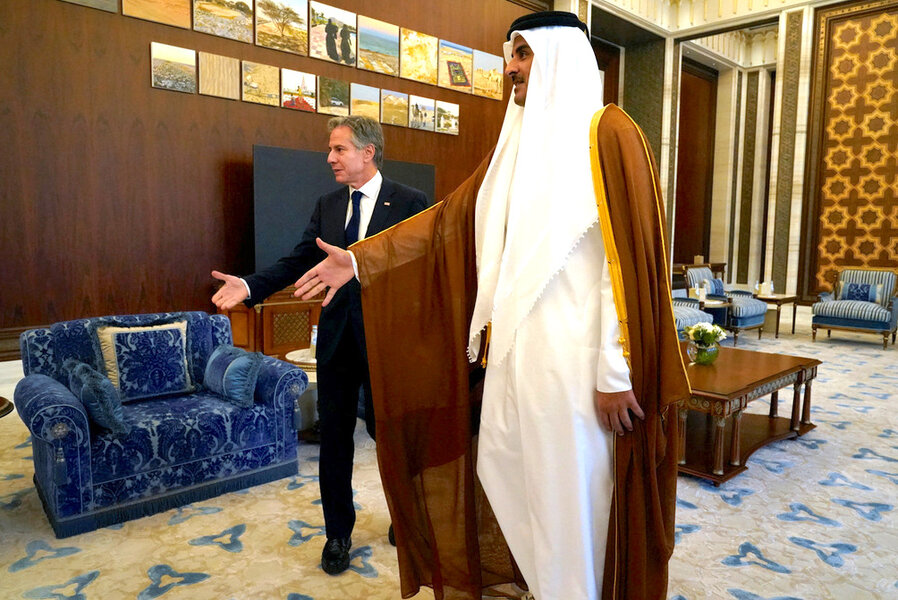Softer ways to deterrence in Gaza
For three-quarters of a century, since the founding of the state of Israel in 1948, power in the Middle East has largely been measured in guns. President Joe Biden seemed to reinforce that point during his brief, extraordinary trip to Tel Aviv today. He vowed to ensure “Israel’s qualitative military edge” in its conflict with Hamas, the militant Palestinian group that launched a deadly raid Oct. 7.
The hand-delivered message was a warning to Israel’s enemies to resist escalating the war. Mr. Biden arrived just hours after an explosion at a hospital in Gaza City killed hundreds of Palestinians.
Yet Mr. Biden’s real message of deterrence may be in something else he said. “When we are faced with tragedy and loss, we must go back to the beginning and remember who we are,” he told reporters. “We are all human beings created in the image of God with dignity, humanity, and purpose. In the darkness, to be the light unto the world is what we’re about.”
That insight captures a trend that has been quietly remaking the Middle East over decades. Despite the current winds of war, the region’s leaders and global patrons are more inclined toward quiet diplomacy than toward warfare.
As the Middle East Institute in Washington pointed out in a report last May, “The Middle East is undergoing a historic transformation with unprecedented opportunities to build new relationships, de-escalate tensions, and foster conditions for stronger integration.”
Mr. Biden’s trip was only part of a flurry of diplomatic activity. German Chancellor Olaf Scholz was in Cairo exploring solutions to the Gaza crisis with Egyptian President Abdel Fattah al-Sisi. Japanese Prime Minister Kishida Fumio and Saudi Crown Prince Mohammed bin Salman pledged by phone to form a coordinated humanitarian response to the Israel-Hamas conflict.
Representatives of all 57 members of the Organization of Islamic Cooperation gathered in Saudi Arabia today, seeking ways to prevent an escalation of the conflict. Foreign ministers from the members of the Gulf Cooperation Council gathered yesterday in Oman. These meetings rest on the emergence in recent years of countries like Egypt, Oman, Turkey, and Qatar as regional peacemakers.
The shift from war to dialogue shows that the definition of power in the Middle East is undergoing a profound transformation. Diplomacy, or soft power, finds strength in trust, transparency, and compassion. It seeks one’s own good in the welfare of others. Its effects can be immediate. By the time Mr. Biden had boarded Air Force One to return home, Israel had already announced it would lift a blockade of humanitarian aid into Gaza.
“The Arab world is undergoing significant changes,” Mohamed Kamal, a Cairo University political science professor, wrote in Ahram Online in February. “We, as Arabs, must think of ourselves as partners in a single initiative and one that is ultimately positive. If the losses of one country affect all the others ... the gains of one are the gains of all.”








